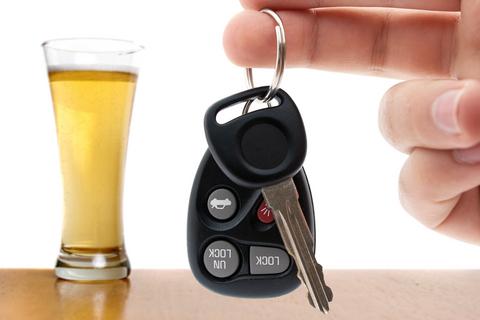Follow Us |Facebook
Call or Text for a Consultation
Recent Blog Posts
Men Infected with Legionnaire's Disease at Gym
 Legionnaire’s disease is a bacterial infection that is not spread from person to person but rather through mist that is inhaled and contains bacteria. Common causes of the disease include cooling towers, showers and air conditioning units. Symptoms usually consist of chills, coughing, and a fever but can lead to a deadly form of pneumonia. The disease itself is so deadly that between five to thirty percent of those who contract the disease die. It is also a pretty rare disease with only 25 cases reported in DuPage County this year.
Legionnaire’s disease is a bacterial infection that is not spread from person to person but rather through mist that is inhaled and contains bacteria. Common causes of the disease include cooling towers, showers and air conditioning units. Symptoms usually consist of chills, coughing, and a fever but can lead to a deadly form of pneumonia. The disease itself is so deadly that between five to thirty percent of those who contract the disease die. It is also a pretty rare disease with only 25 cases reported in DuPage County this year.
Two men from DuPage County were infected by the upper respiratory infection in October of this year. Luckily they are in stable condition at area hospitals. While it can be deadly, the recovery process can take up to four months. That is why health officials from the County Health Department have acted so quickly to determine the cause of this recent outbreak and stop it from causing more damage.
The officials were able to narrow down the possible causes of the outbreak to a hot tub at a gym in Naperville. At the LA Fitness on Freedom Drive, the hot tub has been closed for cleaning while the rest of the gym remains open. The other areas of the facility were all tested and found to be free of the deadly bacteria. While LA Fitness cooperated with the investigation, it seems like they didn't tell their members about the issue.
Car Accident FAQ: Do I Have Whiplash?
 If you have been hit from behind in a car accident, the terrible pain in your neck could have been caused by whiplash. The term whiplash describes the type of movement your neck can experience during a hit from behind. The neck is initially snapped back, called hyperextension, followed by strong propulsion forward, called hyperflexion, before the neck and head finally come to rest. For this reason, the medical and legal communities typically refer to whiplash injuries as hyperextension/hyperflexion injuries.
If you have been hit from behind in a car accident, the terrible pain in your neck could have been caused by whiplash. The term whiplash describes the type of movement your neck can experience during a hit from behind. The neck is initially snapped back, called hyperextension, followed by strong propulsion forward, called hyperflexion, before the neck and head finally come to rest. For this reason, the medical and legal communities typically refer to whiplash injuries as hyperextension/hyperflexion injuries.
When these movements occur, it is common to experience injuries to the soft tissues of the neck. These soft tissues can include muscles, ligaments, tendons, nerves, and intervertebral discs. Sometimes the symptoms involved with soft tissue injuries are not felt right away. This does not mean the injuries are not serious. This is why it is important to see a doctor as soon as possible following a motor vehicle accident.
New Illinois Rules Regarding Civil Settlements
 Recently, Governor Quinn signed Public Act 098-0548 into law, officially amending the Illinois Code of Civil Procedure. The amendment generated a statutory section regarding settlements and liens for civil cases. If you believe you have the grounds for a personal injury case that may be influenced by the new civil settlement requirements, you should discuss the specifics and potential impacts with your personal injury attorney.
Recently, Governor Quinn signed Public Act 098-0548 into law, officially amending the Illinois Code of Civil Procedure. The amendment generated a statutory section regarding settlements and liens for civil cases. If you believe you have the grounds for a personal injury case that may be influenced by the new civil settlement requirements, you should discuss the specifics and potential impacts with your personal injury attorney.
The statute, 735 ILCS 5/2-2301, puts into place explicit deadlines regarding the exchange of settlement documents and payments once a civil case has reached settlement. For victims of personal injury who are receiving payments for their damages and suffering, these payments are of critical assistance in helping them to pay off bills and close the gap with missed work time. The new statute puts penalties on defendants (inclusive of entry of judgment and associated costs) if the settlement draft is not provided by the defendant within 30 days of settlement document receipt.
Man Injured by Drunk Driver Awarded Compensation
 Car accidents can happen at any time. Stephen Dewart was walking on a sidewalk in the Gulf Coast neighborhood in Chicago when his life changed forever. It was a beautiful day on May 21st in 2011 and it will not be forgotten by Dewart for a long time.
Car accidents can happen at any time. Stephen Dewart was walking on a sidewalk in the Gulf Coast neighborhood in Chicago when his life changed forever. It was a beautiful day on May 21st in 2011 and it will not be forgotten by Dewart for a long time.
City driver Dwight Washington is the main reason the Dewart will remember. He had an open bottle of brandy when he drove his city issued pickup truck into a crowd of pedestrians at the intersection of Cedar and Rush. The accident caused injuries to seven total people. After the accident, Washington had a blood alcohol content level of over two times the legal limit.
Dewart was downtown to help his wife with a photo shoot for her company. His parents were also in the neighborhood and stumbled on their son after the horrible crash. Dewart recounted the accident during his personal injury case against the city of Chicago. “I first heard screeching tires. Then, out of the corner of my right eye, I see this white pick-up barreling toward me at a high rate of speed. I heard the engine accelerate and realized there was nothing I could do. I was frozen.”
Distracted Driving
 In recent years, technology has become a larger and larger part of our everyday lives. With this increase come many benefits, as well as consequences. One of these consequences is the number of car accidents caused by drivers using cell phones behind the wheel. According to the Illinois State Police, using a cell phone while driving can increase your chances of getting into an accident by a whopping 400%.
In recent years, technology has become a larger and larger part of our everyday lives. With this increase come many benefits, as well as consequences. One of these consequences is the number of car accidents caused by drivers using cell phones behind the wheel. According to the Illinois State Police, using a cell phone while driving can increase your chances of getting into an accident by a whopping 400%.
Beginning January 1st of next year, Illinois drivers will face a $75 fine if they are caught using a cellphone without a hands-free device behind the wheel. Gov. Pat Quinn believes that this new law will dramatically decrease the number of deaths and injuries caused by distracted driving accidents each year. Illinois will be the 12th state to prohibit using hand-held cellphones while driving.
Verdict of "Not Guilty" After Trial and Successful Motion to Throw out Admission of Drinking Alcohol
We were retained to represent a woman who was pulled over and ultimately charged with DUI.
The arresting officer had his on-board video camera turned on to show our client's alleged erratic driving, and to record the audio and video from the questioning and field sobriety tests that were administered at the scene.
The officer testified at trial that our client had failed all of the field sobriety tests, but that she had refused to take the alcohol breath test.
 Initially, our client admitted to consuming two beers earlier in the night. After further questioning at the scene, our client told the officer that she had not only consumed more than two beers earlier, but she had also had mixed drinks. The officer charged our client with DUI.
Initially, our client admitted to consuming two beers earlier in the night. After further questioning at the scene, our client told the officer that she had not only consumed more than two beers earlier, but she had also had mixed drinks. The officer charged our client with DUI.
Before the case went to trial, we filed a Motion to Suppress our client's statements regarding the additional drinks she had consumed over and above the two beers. We argued that before the additional questioning, the officer should have read our client her Miranda rights.
Boating safety tips
Driving and biking safety are often discussed at large in the media, but in many cases, boating safety is not addressed, although it is just as important. The Recreational Boating Industry has made a few suggestions to help keep you safe while out on the water this summer.
Just like when driving a car, drinking alcohol while driving a boat is NOT safe. Statistics show that when alcohol is involved, your chances of being involved in a boating accident double. Be smart and save your alcoholic beverages for when you’re safely on land.

Pay attention to the environment around you, including the weather. Before departing, it is important that you check your weather conditions. If chances of storms or rough winds are high, it may be best to go out on the water another day.
One of the most important pieces of boating safety is to take a boating course. No matter what your experience level is- beginner or advanced- a refresher course never hurts. Each state has its own requirements in regards to boating courses. In some states, just completing one boating course is required before heading out onto the water, but that’s not always the case. These courses will help you prepare for anything that may happen while you are out boating.
IllinoisTruck Inspection Blitz Finds Multiple Violations
 Recently, Illinois authorities set up truck safety checks to prevent accidents. The three-day truck inspection, part of the National Roadcheck 2013 Enforcement Program, cited one truck driver with 32 violations. Inspections like these communicate safe traveling practices for truck drivers and remove unsafe vehicles from the roadways. The effort was the result of a partnership between the State of Illinois Department of Transportation (IDOT) and the Illinois State Police (ISP).
Recently, Illinois authorities set up truck safety checks to prevent accidents. The three-day truck inspection, part of the National Roadcheck 2013 Enforcement Program, cited one truck driver with 32 violations. Inspections like these communicate safe traveling practices for truck drivers and remove unsafe vehicles from the roadways. The effort was the result of a partnership between the State of Illinois Department of Transportation (IDOT) and the Illinois State Police (ISP).
“Safety is our top priority here at IDOT and these roadside inspections will help us keep Illinois roads safe by making sure commercial trucks and buses are working properly and ensuring the drivers are following regulations,” said Illinois Transportation Secretary Ann L. Schneider. “We want to thank the many truck drivers who go the extra mile to do their part to be safe and would like to ask all motorists to be mindful of trucks on the roads.”
FBI reports Chicago Hospital involved in Scam
Warning: stripos(): Offset not contained in string in /home/ocvaws/public_html/system-joomla-shared-core/components/com_easyblog/easyblog.php on line 6
Motorcycle Safety in Illinois
Warning: stripos(): Offset not contained in string in /home/ocvaws/public_html/system-joomla-shared-core/components/com_easyblog/easyblog.php on line 6




